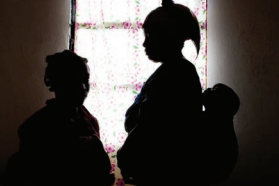For years, survivors of conflict-related sexual violence (CRSV) in South Sudan lived in silence, burdened by trauma, stigma, and the crushing weight of poverty.
However, today, many of these women are stepping out of the shadows, reclaiming their dignity and rebuilding their futures through a groundbreaking initiative that places economic empowerment at the heart of their healing.
Launched in January 2024, the Building Socio-Economic Resilience Project is a joint effort led by South Sudan’s Ministry of Gender, Child and Social Welfare with support from UN agencies, international donors, and local partners. It combines trauma counselling, legal aid, and livelihood support to help survivors turn pain into purpose.
At a high-level conference in Juba on Monday last week, survivors, government officials, and humanitarian actors gathered to reflect on the project’s early impact. Radio Tamazuj spoke to the survivors, who shared their stories of survival, recovery, and resilience.
Among them was Sarah, who said the nights were the hardest for her.
“When I try to sleep, the nightmares return,” she says, her voice trembling. “All my body has been cut, small and big.”
Sarah, not her real name, is from Western Equatoria State, a region scarred by decades of armed conflict and abductions by both foreign and local armed groups. She spent years in captivity—first under the Lord’s Resistance Army (LRA), later under local militia groups. In the bush, she bore five children. She lost her family. She lost her home. But she never lost hope.
“They took everything from us, our families, our homes, our peace,” she says. “But they did not take our hope. Today, we stand. And we will not go back to the bush.”
Sarah is now one of over 200 women enrolled in South Sudan’s Building Socio-Economic Resilience Project, a joint initiative led by the Ministry of Gender, Child and Social Welfare in partnership with UN agencies, civil society groups, and international donors. Launched in January 2024, the program goes beyond traditional aid, placing economic empowerment at the heart of long-term healing and reintegration for survivors of conflict-related sexual violence (CRSV).
In 2024 alone, the United Nations Mission in South Sudan (UNMISS) recorded over 1,019 violent incidents affecting more than 3,600 civilians, including 246 cases of CRSV, a 9 percent increase from the previous year. Western Equatoria State had the highest number of sexual violence cases.
Hundreds of kilometers away, in Jonglei State, Rose, also not her real name, tells a parallel story of pain and resilience. She, too, was abducted and spent years in the bush. Her captors gave her no choice. She returned with scars, physical and emotional, and children who depend entirely on her.
“The last eight years were tough, but today, I am no longer the same,” she discloses. “I have been helped, and now I stand here as me alone but not broken.”
Rose has become a provider, a businesswoman, and a symbol of resilience in her community.
“I used to have nothing,” she says. “But today, I supply 20 liters of liquid soap every day to the Ayok Hotel. One of my children is now in school because of this business. My dream is to grow it and educate all my children.”
With skills training provided by the project, Rose has learned soap-making, financial literacy, and business management.
“Right now, I am very much well-versed in the making of liquid soap,” she says. “That has helped me.”
Rose continues, “Currently, I can take at least one kid to school. I am still working steadily and methodically. If more help comes, I will add another child to school.”
“The help I have received is enough to keep me going. I only need a little boost, so that my business can grow and support the rest of my children.”
Traditionally, support for CRSV survivors focused on immediate medical or legal aid. However, Undersecretary Esther Ikere of the Ministry of Gender, Children, and Social Welfare states that without financial empowerment, lasting reintegration is not possible.
“Without economic opportunity, it becomes difficult to reintegrate survivors into society fully,” she explained. “This project has introduced business training, savings groups, and income-generating activities to over 200 survivors, allowing them not just to survive, but to thrive.”
From running small shops to farming and producing soap and detergents, survivors are regaining agency in a society where stigma and poverty often silence them.
Legal and Policy Progress
The project also supports South Sudan’s obligations under the 2018 Revitalized Agreement on the Resolution of the Conflict in South Sudan (R-ARCSS), which commits to legal protections for survivors of gender-based violence.
This progress is embodied in the draft Anti-GBV Bill, now awaiting Cabinet approval, which seeks to criminalize CRSV and mandate survivor-centred services.
The initiative further aligns with UN Security Council Resolutions 1820 and 2106, which recognize CRSV as a war crime and urge accountability, psychosocial support, and economic reintegration for survivors.
“This is not charity. This is an accountability—building system that puts survivors at the centre,” said Sheila Keetharuth, a senior UN coordinator.
Long-Term Commitment
The program is funded by Germany, Norway, Global Affairs Canada, UNFPA, UNMISS, and the International Trade Centre. It bridges national ministries with international organizations and grassroots groups, offering a model for scalable, survivor-centred care.
“We are documenting what works so we can refine and scale up future initiatives,” Keetharuth added.
Although this phase of the project is scheduled to conclude in mid-2025, officials are advocating for a long-term political commitment to integrate survivor services into national systems.
“True healing means systems, not time-bound projects,” said Undersecretary Ikere. “We will continue this work long after this project cycle ends.”
And for Rose, that continuity is deeply personal.
“I used to have nothing,” she said. “But today, I run my own business and send my child to school. All I need is a little more support, not just for me, but for every woman like me trying to rise again.”




